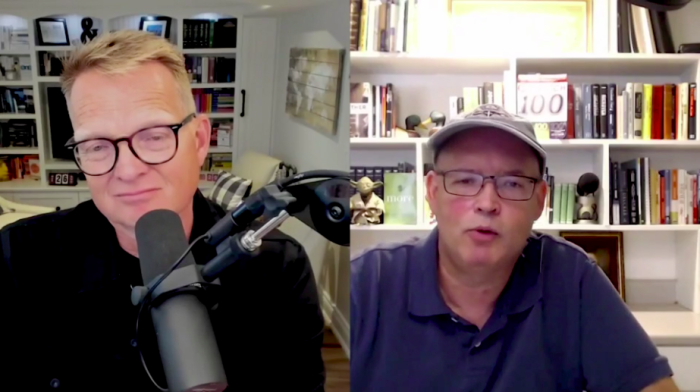Post-COVID church: Expert identifies 2 biggest concerns facing church leaders

When it comes to the post-COVID church, church leaders’ two biggest concerns are how to engage in disciple-making in a virtual context and “the whole debate over new normals,” a church-planting expert said.
The COVID-19 pandemic has “thrown 100% of churches” into chaos over the last six months — and “there is a new normal coming," Exponential CEO Todd Wilson told Carey Nieuwhof, founding pastor of Connexus Church and host of The Carey Nieuwhof Leadership Podcast.
“The question is, who's going to shape it? What is it? And if only one and a half percent of churches are the pioneering mapmakers for that new normal, who should we even be listening to and watching? What are the trends?”
According to Wilson, “What is church” is “going to become “one of the key questions coming out of COVID,” as the digital way many are currently worshiping is “more of a missionary impulse for evangelism.”
“Personally, I'm predicting it's going to become more of a debate, not less as we move into the future,” he said on the podcast episode, titled “The Future of Innovative Church Planting.” “It seems like the new normal is going to involve greater digital than pre-COVID ... All of a sudden, churches are going to think about, ‘Why do I even have a physical building? Why do I need it? Why not be completely digital?’”
“At some point, we've got to go through that question of, ‘What, physically, is church?”
Currently, money “drives” the model of the church in the United States. However, COVID-19 has disrupted the predominant church model, Wilson said.
“If the future is ... either digital or micro, ... how do you fund that model?” he asked.
“I actually think it's the elephant in the room right now, that if we're looking into a future [that is] more digital and more people not coming back to physical church, ... how do you fund that model when it's got a well-established funding model?”
Because many churches are still unable to meet in person, church leaders are struggling with how to engage in disciple-making in a virtual context, Wilson said. The future church will also be challenged with maintaining community and building relationships.
“Does Jesus intend that every man woman and child have a healthy church family?” Wilson asked. “Then I've got to carry a burden of responsibility that if I'm letting somebody just declare anything and everything as a church, I'm not necessarily being obedient to what Jesus intends with things.”
Church leaders are going to be tasked with “thinking about the engagement part of church,” he said. “I'm not saying that through the lens of, church equals a steeple with brick and mortar building. I'm talking to the relational part of it.”
While it’s important to leverage the power of media to get the Gospel message out to “as many people as we can,” Wilson argued that at some point, “the goal isn't just getting the message out there ... There's a transformational relational thing.”
“I think we’ve got to keep bringing it back to, not locked into the models of the past of big buildings with whatever, but whether it's microsites, microchurches, multisites, whatever they might be, there's still got to be the relational life-on-life ... healthy, functional family.”
“Most people don't have a healthy, functional family in their life truth,” he posited. “If I do have an optimistic thing about microsites and microchurches and possibly the pivoted church of the future, I actually think the opportunity is there for the church to be much more of a functioning family when you've decentralized it into cells as something that you come to on Sunday morning.”
During the podcast, Nieuwhof and Wilson also weighed in on the importance of church leaders caring for their mental health in the wake of COVID-19. Wilson said that the emotional, spiritual, and mental health of church leaders in this season are a “huge concern” for him and the other leaders at Exponential.
“I think this issue of mental health ... we've got to pay attention to it,” he said. “One assumption we're making at Exponential is that things are going to get worse before they get better.”
A September survey from Barna found that just over half of pastors expect their worship attendance to decline after the COVID-19 pandemic is over.
As for pastors, Thom S. Rainer, founder and CEO of Church Answers, an online community and resource for church leaders, recently wrote that the “vast majority of pastors with whom our team communicates are saying they are considering quitting their churches.”
“It’s a trend I have not seen in my lifetime,” Rainer, the former CEO of LifeWay Christian Resources, explained. “Some are just weeks away from making an announcement. They are looking for work in the secular world. Some will move to bi-vocational ministry. Some will move to marketplace ministry.”
Among the struggles that pastors are facing, Rainer said, is that they are “weary from the pandemic,” “discouraged” by fights between church members and facing declining membership, financial uncertainties, increased workload and increased criticism.



























